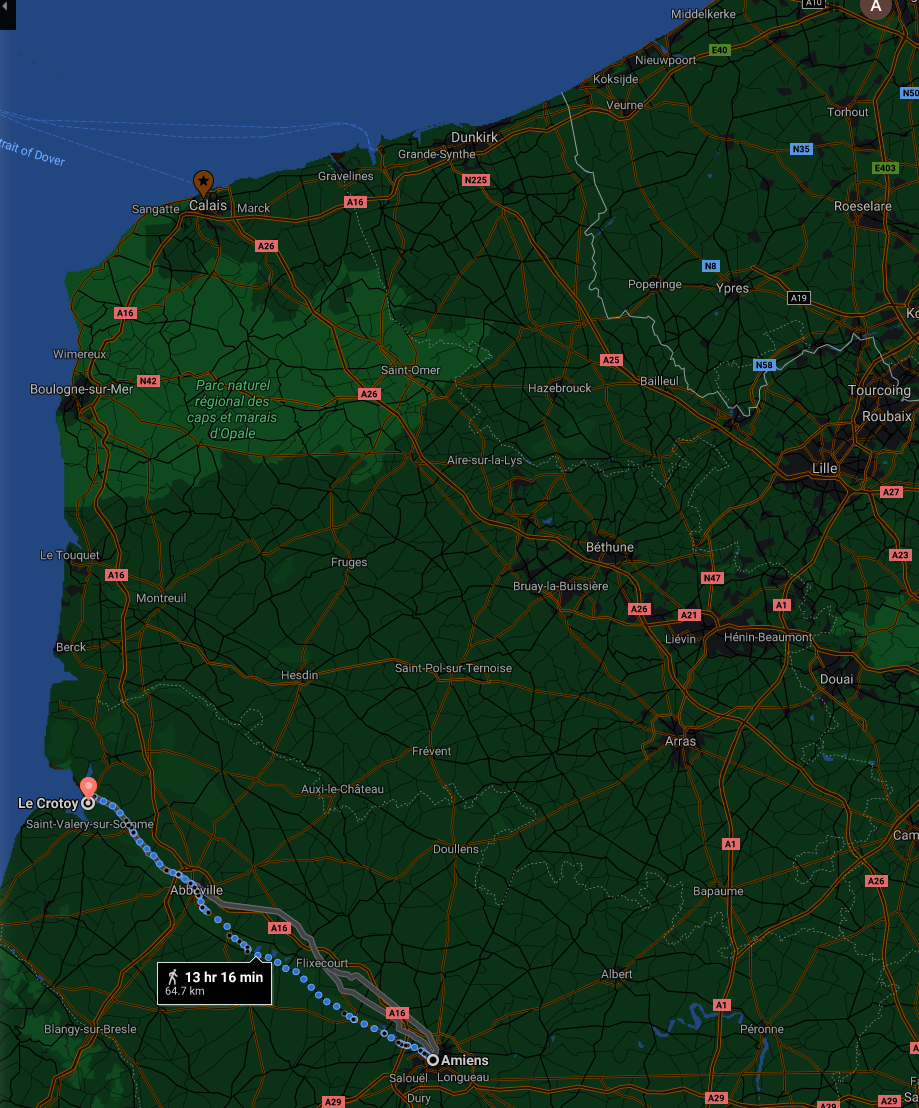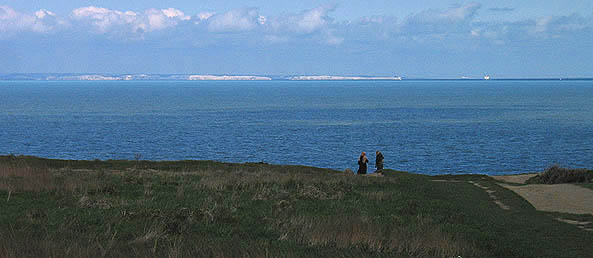ouf, hard one.
There are MANY ways to obtain this detail, but all of them require in-depth and specialist knowledge by the traveler.
There is a well-established local population, though very sparse by modern standards.
Iron age technology. Somewhat warlike, hill-forts with attendant settlements. Language Celtic and Germanic, with some Greek along the coasts. Your traveler will understand, even recognize, nothing from the language. Romans exist, but only as rumors of a tribe over the mountains, they would have no influence in France yet.
Geographically, he will see forested hills, and forested plains, and swamps, and grassy plains. Maybe get a glimpse of some true mountains to the south. He should be able to get a rough idea of latitude from the sun position and at night from the stars. But none of this will tell him whether he is in Europe, or Ukraine, or China, or North America. If he was a gonzo amateur astronomer he could get exact latitude and place the date to within 50 years, by measuring the deviation of Polaris from the celestial northpole, but how many of us know how to do that? And this would still give no clue as to longitude.
Plantlife will give him both location and timespan, but... Just how many people can even tell the difference between the various plants' subspecies, much less recall where they originated and when the plants were spread by humans to other regions? For example, the absence of rice and maize and potato but presence of lowgrowing Barley and really tall Wheat will tell him he is in central Europe between 1000bc and 200bc. But... can he even see the difference between Wheat and Barley of any kind? Most people cannot.
Unless your traveler has specialized, obscure knowledge in either ancient languages, or historic biology, or astronomy with a keen observation eye and knowledge of Earth's orbital precession, etc... He will most likely remain rather lost. And also, will likely not survive long enough to learn. Primitive tribes tended to behave unkindly to strangely-dressed people speaking nonsense, and the wildlife will only care about his calories, not his origin.
Example:
If this were to happen to me, I would die.
But give me an armed escort, and some survival supplies...
I could determine north/south hemisphere and rough latitude within one day, from sunsticks. This will also give me compass directions more accurate than any magnetic compass(who knows where the magnetic northpole would be, at unknown date in the past?).
I could determine the latitude within the first cloudless night, accurate to about 2-3 degrees.
500BC is an opportune time, as right about then (+-80 years) the celestial north pole was squarely on the brightest star of the little dipper's bowl.
So after one sunny day and one cloudless night I would know my latitude, and the date. (Yes, I'm a bit of an astronomy geek).
The Climate and Plantlife would tell me I'm somewhere in Europe, or western Asia. Possibly even regions of China. But nothing better than that.
Ditto for observing or interacting with natives. I know in theory what languages they should be speaking, but to actually recognize them, much less intelligent conversations? Nope.
Pity we are not a bit further south, I would recognize the old Latin of the Romans(although they are more like their ancestors the Etruscans than the Imperial Rome we think of). Would not be able to speak it well enough to make myself understood, but at least they would see that I'm trying. But the older Celtic and Germanic languages? I have no clue!
So, for my specific case, I would be able to place the date and latitude very closely, the longitude only +- 6000 kilometers.
And that's from someone having specialist knowledge (astronomy), and keen interest (ancient civilizations and sciences)



